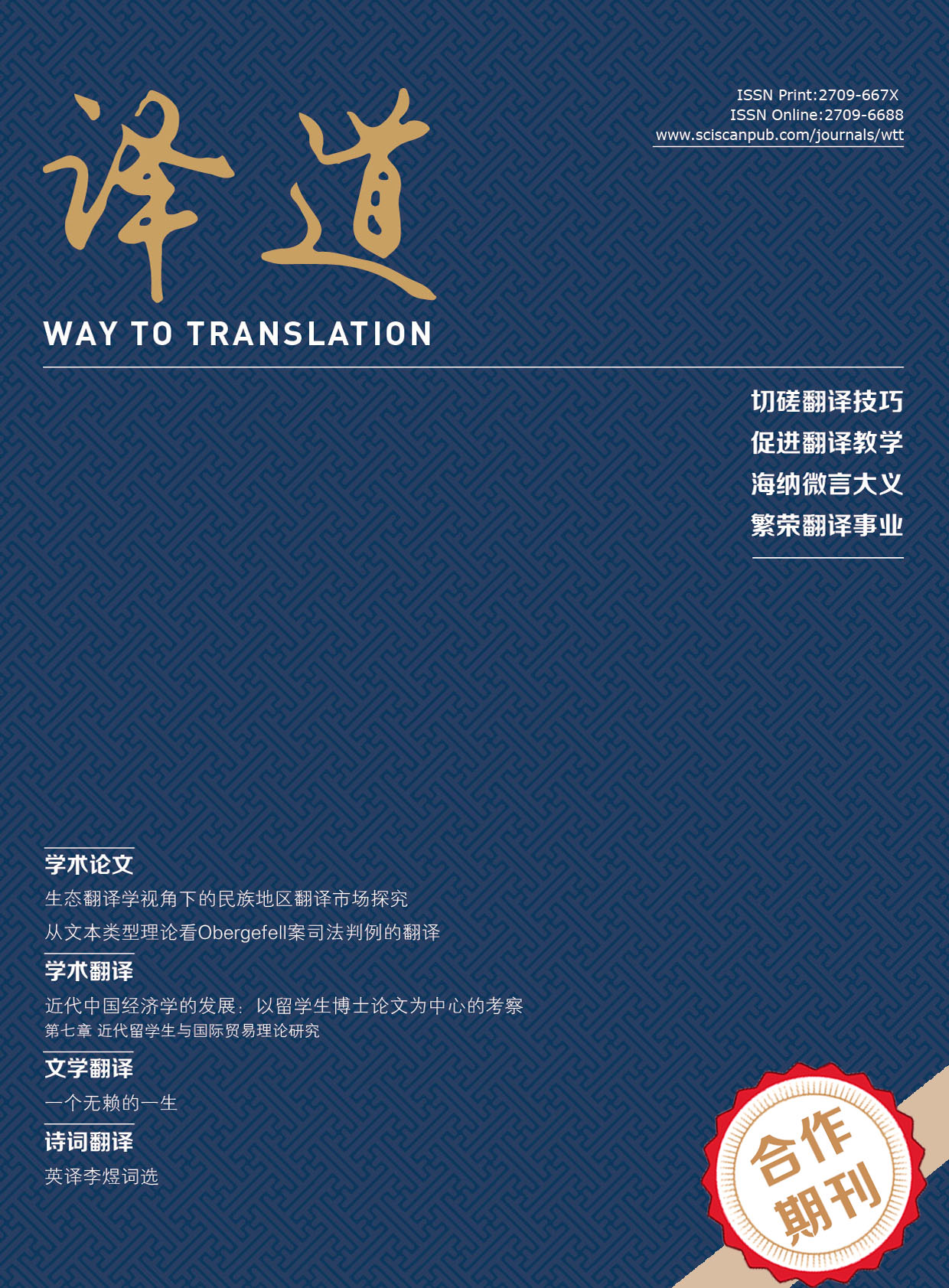Way to Translation
ISSN Print: 2709-667X
ISSN Online: 2709-6688
Contact Editorial Office
Subscribe to the latest published information from SCISCAN
葛浩文译王安忆《富萍》的翻译、出版及接受探究
The English Translation, Publication and Acceptance of Wang Anyi’s Fu Ping by Howard Goldblatt
- Authors: 岑群霞 邱瑜毅
-
Information:
浙江财经大学外国语学院,杭州
-
Keywords:
Howard Goldblatt; Wang Anyi; Fu Ping; English translation; Publication; Acceptance葛浩文; 王安忆; 《富萍》; 英译; 出版; 接受
- Abstract: This paper explores Howard Goldblatt’s translation process of Fu Ping by Wang Anyi, and its publication and acceptance in America and Britain. The findings are as follows: Goldblatt chooses to translate Fu Ping of his own accord instead of being invited by a publishing press, for he appreciates its writing style and figures. He intends to present the Chinese cultural features in the original work, whose symbolic capital also allows him to turn to an interest-oriented translation without interference. He is thus faithful in translation, but the translation process is long, due to Wang Anyi’s calm, unadorned style of writing with lots of daily details, which affects its translatability. The unexciting story plots in the original work also lead to the fact that the translation work faithful to the original one will not be accepted by a business publishing press, but by an academic press such as Columbia University Press. As to the acceptance of the translation work, it is considered by readers as one with both literary and social value. 该文探讨葛浩文英译王安忆小说《富萍》的翻译过程、出版及其在英美国家的接受。结果如下:《富萍》的英译活动是出于葛浩文的主动译介而非通常情况下的出版社邀约。译者欣赏原作的写作风格以及刻画人物的深度,努力呈现原著的异质文化特征,其象征资本也容许他转向兴趣导向下的自主译介,因此翻译方法上忠实原著,但原作冷静平实、绵密细致的语言特色使其可译性不强,翻译过程漫长。此外原作故事情节不够曲折,导致忠于原作的译作不能被商业出版社接受,最终在学术出版社哥伦比亚大学出版,读者接受上译作被认为颇具文学价值和社会学价值。
- DOI: https://doi.org/10.35534/wtt.0203003
-
Cite:
岑群霞,邱瑜毅.葛浩文译王安忆《富萍》的翻译、出版及接受探究[J].译道,2022,2(3):17-24.
















